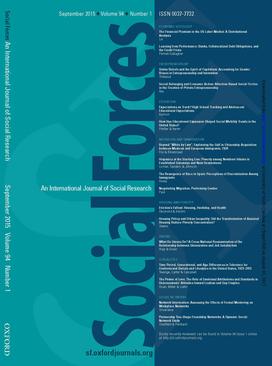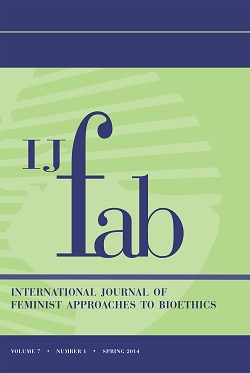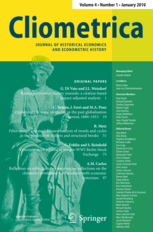
Economic history is the study of history using methodological tools from economics or with a special attention to economic phenomena. Research is conducted using a combination of historical methods, statistical methods and the application of economic theory to historical situations and institutions. The field can encompass a wide variety of topics, including equality, finance, technology, labour, and business. It emphasizes historicizing the economy itself, analyzing it as a dynamic entity and attempting to provide insights into the way it is structured and conceived.
Regional science is a field of the social sciences concerned with analytical approaches to problems that are specifically urban, rural, or regional. Topics in regional science include, but are not limited to location theory or spatial economics, location modeling, transportation, migration analysis, land use and urban development, interindustry analysis, environmental and ecological analysis, resource management, urban and regional policy analysis, geographical information systems, and spatial data analysis. In the broadest sense, any social science analysis that has a spatial dimension is embraced by regional scientists.

Cliometrics, sometimes called 'new economic history' or 'econometric history', is the systematic application of economic theory, econometric techniques, and other formal or mathematical methods to the study of history. It is a quantitative approach to economic history.

Historiometry is the historical study of human progress or individual personal characteristics, using statistics to analyze references to geniuses, their statements, behavior and discoveries in relatively neutral texts. Historiometry combines techniques from cliometrics, which studies economic history and from psychometrics, the psychological study of an individual's personality and abilities.
The impact factor (IF) or journal impact factor (JIF) of an academic journal is a scientometric index calculated by Clarivate that reflects the yearly mean number of citations of articles published in the last two years in a given journal, as indexed by Clarivate's Web of Science.

Robert William Fogel was an American economic historian and scientist, and winner of the 1993 Nobel Memorial Prize in Economic Sciences. As of his death, he was the Charles R. Walgreen Distinguished Service Professor of American Institutions and director of the Center for Population Economics (CPE) at the University of Chicago's Booth School of Business. He is best known as an advocate of new economic history (cliometrics) – the use of quantitative methods in history.

Deirdre Nansen McCloskey is an American economist and academic. Since 2023 she has been a Distinguished Scholar and holder of the Isaiah Berlin Chair in Liberal Thought at the Cato Institute in Washington, D.C. From 2000 to 2015, she taught at the University of Illinois at Chicago, where she was Distinguished Professor of Economics History, and Professor of English and Communication. During those years, she taught economic history at the University of Gothenburg, economics at the University of the Free State, and philosophy at Erasmus University Rotterdam.
Journal Citation Reports (JCR) is an annual publication by Clarivate. It has been integrated with the Web of Science and is accessed from the Web of Science Core Collection. It provides information about academic journals in the natural and social sciences, including impact factors. JCR was originally published as a part of the Science Citation Index. Currently, the JCR, as a distinct service, is based on citations compiled from the Science Citation Index Expanded and the Social Sciences Citation Index. As of the 2023 edition, journals from the Arts and Humanities Citation Index and the Emerging Sources Citation Index have also been included.

Social Forces is a quarterly peer-reviewed academic journal of social science published by Oxford University Press for the Department of Sociology at the University of North Carolina at Chapel Hill. It concentrates on sociology but also has a multidisciplinary approach, publishing works from the fields of social psychology, anthropology, political science, history, and economics. Each issue includes between 20 and 25 articles. In addition, the journal also publishes book reviews.
The Journal of Political Economy is a monthly peer-reviewed academic journal published by the University of Chicago Press. Established by James Laurence Laughlin in 1892, it covers both theoretical and empirical economics. In the past, the journal published quarterly from its introduction through 1905, ten issues per volume from 1906 through 1921, and bimonthly from 1922 through 2019. The editor-in-chief is Magne Mogstad.

The Web of Science is a paid-access platform that provides access to multiple databases that provide reference and citation data from academic journals, conference proceedings, and other documents in various academic disciplines. Until 1997, it was originally produced by the Institute for Scientific Information. It is currently owned by Clarivate, and currently contains 79 million records in the core collection and 171 million records on the platform.

The Journal of Interdisciplinary History is a quarterly peer-reviewed academic journal published by the MIT Press. It covers a broad range of historical themes and periods, linking history to other academic fields.
Financial History Review is a peer-reviewed academic journal published three times a year by Cambridge University Press on behalf of The European Association for Banking and Financial History (eabh). Established in 1994, the journal covers the historical development of banking, finance, and monetary matters. Articles address a broad range of issues of financial and monetary history, including technical and theoretical approaches, those derived from cultural and social perspectives and the interrelations between politics and finance. It is the only authoritative academic journal dedicated solely to financial history.

The Journal of Contemporary History is a quarterly peer-reviewed academic journal covering the study of history in all parts of the world since 1930. It was established in 1966 by Walter Laqueur and George L. Mosse. Originally published by Weidenfeld & Nicolson it was purchased by SAGE Publications in 1972. The editors-in-chief are Richard J. Evans and Mary C. Neuburger.

The Economic History Review is a peer-reviewed history journal published quarterly by Wiley-Blackwell on behalf of the Economic History Society. It was established in 1927 by Eileen Power and is currently edited by Sara Horrell, Jaime Reis and Patrick Wallis. Its first editors were E. Lipson and R. H. Tawney and other previous editors include M. M. Postan, H. J. Habbakuk, Max Hartwell (1960–1968), Christopher Dyer, Nicholas Crafts, John Hatcher, Richard Smith, Jane Humphries, Steve Hindle and Phillipp Schofield.

Explorations in Economic History is a peer-reviewed academic journal of quantitative economic history. It follows the quantitative or formal approaches that have been called cliometrics or the new economic history, applied to any place and time. These formal approaches apply mathematical economic theory, model building, and statistical estimation. It is published by Elsevier and the editors-in-chief are W.J. Collins and H.J. Voth.

The Journal of Economic History is an academic journal of economic history which has been published since 1941. Many of its articles are quantitative, often following the formal approaches that have been called cliometrics or the new economic history to make statistical estimates.
Social Science History Association was formed in 1972 and brings together scholars from numerous disciplines interested in social history. The Social Science History Association's core purpose is: "To bring together members of various disciplines who work with historical materials."

IJFAB: International Journal of Feminist Approaches to Bioethics is a biannual peer-reviewed academic journal providing a forum in bioethics for feminist thought and debate. The journal is a publication of the International Network on Feminist Approaches to Bioethics. Mary Rawlinson was its inaugural editor (2006) and served in that capacity until she stepped down in 2016. She was replaced by a team of editors including Robyn Bluhm, Hilde Lindemann, Jamie Lindemann Nelson and Jackie Leach Scully. Kate Caras as an employee of Indiana University Press was the journal's publisher from 2006 to 2014. She then transitioned to the position of senior managing editor when production was taken over by the University of Toronto Press in 2014.

Global Networks: A journal of transnational affairs is a quarterly peer-reviewed multidisciplinary academic journal dedicated to the study of globalization and transnationalism. Its focus spans multiple disciplines within social science, including geography, anthropology, and political economy. It was established in 2001 and is published by Wiley. The founding editors-in-chief were Robin Cohen, Alasdair Rogers, and Steven Vertovec. The current editors-in-chief are Megha Amrith, Zachary P. Neal, and Johanna Waters. According to the Journal Citation Reports, the journal has a 2020 impact factor of 2.927, ranking it 14th out of 93 journals in the category "Anthropology" and 36th out of 85 journals in the category "Geography".














